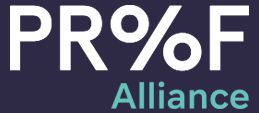
Assessment of Prenatal Alcohol Exposure Screening Practices in Minnesota Clinics
ACET Inc. was commissioned by Proof Alliance to conduct an assessment of prenatal alcohol exposure screening practices in Minnesota clinics.
Learn how Minnesota clinics are screening for alcohol use before and during pregnancy, what their needs are, and how clinics can be supported to improve their screening and brief intervention processes.

Caregiver Webinar Series: Navigating County Services
This series helps caregivers and guardians to understand county services such as waivers, grants, financial support, respite and community activities.

FASD Basics
This series is for caregivers to individuals with an FASD. This webinar covers FASD basics as well as strategies in supporting communication and dysregulation.

FASD in Indian Country: Part 1
This is the first part in a series discussing the disparities and variance in Native American communities and their impact on preventing fetal alcohol spectrum disorders (FASD). This series will also discuss approaches moving forward together to decrease FASD in Indian Country.

FASD in Indian Country: Part 2
This is the second part in a series discussing the disparities and variance in Native American communities and their impact on preventing fetal alcohol spectrum disorders (FASD). This series will also discuss approaches moving forward together to decrease FASD in Indian Country.

FASD in Indian Country: Part 3
This is the third part in a series discussing the disparities and variance in Native American communities and their impact on preventing fetal alcohol spectrum disorders (FASD). This series will also discuss approaches moving forward together to decrease FASD in Indian Country.

FASD is a Matter of Justice Presentation and Youth Perspective
The average age that children with FASD start having trouble with the law is 12. Learn how FASD impacts cognitive development and supportive strategies that can change that pathway.

FASD Screening Training for Child Welfare Workers
Effective August 1, 2020, a prenatal alcohol exposure screening is required for any child entering foster care in Minnesota as soon as practicable but no later than 45 days after the removal of the child from the child’s home, if the agency has determined that the child has not previously been screened or identified as prenatally exposed to alcohol.

How to Keep Your Kids Safe Online, Part 1
This series provides “Tips for Safe Technology Use for Students with Disabilities” as well as walks caregivers through resources to mitigate dangers of social media use.

How to Keep Your Kids Safe Online, Part 2
This series provides “Tips for Safe Technology Use for Students with Disabilities” as well as walks caregivers through resources to mitigate dangers of social media use.

Proof Alliance Certified Trainer (PACT) Training
Become a trainer and maintain PACT status by attending PACT certification annually. This course is open to enrolled PACT trainers only.

ProofCON Pro: FASD and Child Welfare
Children with fetal alcohol spectrum disorders (FASD) are highly overrepresented in the child welfare system, including foster care and out-of-home placement. On average, a child with FASD is 17 to 19 times more likely to be in the child welfare system than someone without an FASD.
During this session, presenters will address the intersection of child welfare and FASD, including how the child welfare system currently cares for children with FASD, how to improve child welfare practice for FASD and how FASD intersects with the Indian Child Welfare Act (ICWA).

ProofCON Pro: FASD and Mental Health
ProofCON Pro is a quarterly conference series that takes a deep dive into the intersection of fetal alcohol spectrum disorders (FASD) and a relevant topic. Our inaugural event is on mental health. These sessions will provide attendees with leading research and evidence-based programming, as well as personal experience and historical perspectives.

Providing Culturally Competent Care to American Indian Patients
The Providing Culturally Competent Care to American Indian Patients course is a starting point for providers seeking to provide quality care to American Indian patients. In this course, you will have the opportunity to grow in each of these areas. This course is broken into the following lessons:
-Diversity of Native Communities
-Understanding Native Culture
-Gaining Context: Understanding Historical Trauma
-Providing Culturally Competent Care
-Incorporating Traditional Medicine

What Foster, Prospective And Post Adoptive Families Need To Know About Fetal Alcohol Spectrum Disorders
It is estimated that almost 70% of the children in foster care are affected by prenatal alcohol exposure in varying degrees. Knowing this, what can foster and adoptive caregivers/guardians do to support these children's needs?

